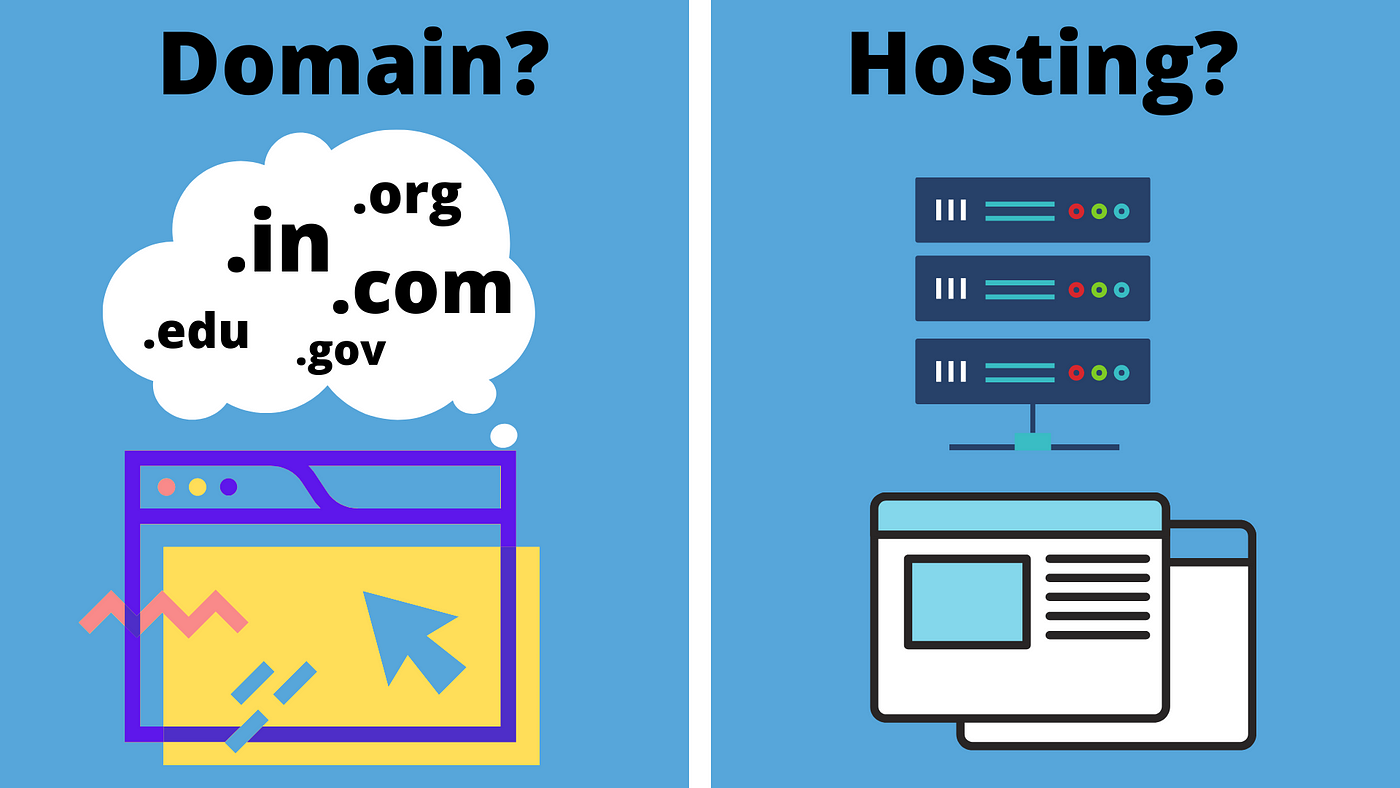
When
setting up a website, two critical elements are securing a domain name and
selecting a hosting provider. Here's an overview of each:
1. Domain Name:
- Definition: A domain name
is the web address that users type into their browsers to access your
website. It's a user-friendly way to navigate to a website, as it
translates an IP address (e.g., 192.168.1.1) into a recognizable and
memorable name (e.g., www.example.com).
- Registration: To obtain a
domain name, you must register it through a domain registrar. There are
many registrars available, such as GoDaddy, Namecheap, and Google Domains.
The registration typically involves a yearly fee.
- Choosing a Domain Name:
- Relevance: The domain
name should reflect the content or purpose of your website.
- Short and Memorable: Shorter
names are easier to remember and type.
- Avoid Hyphens and Numbers: These can
make a domain name harder to remember and type.
- Keyword Inclusion: If relevant,
including keywords in your domain can help with search engine
optimization (SEO).
- TLD (Top-Level Domain): Choose an
appropriate TLD, such as .com, .org, .net, or country-specific TLDs like
.uk or .ca.
- Renewal: Domain names
are typically registered on an annual basis. It's essential to renew your
domain to maintain ownership and keep your website accessible.
2. Hosting:
- Definition: Web hosting
is a service that provides the infrastructure and resources needed to
store and serve your website's content and files to users on the internet.
Web hosting services offer various hosting plans with different resources
and features.
- Types of Hosting:
- Shared Hosting: Your website
shares server resources with other websites. It's cost-effective but may
have limitations on performance and customization.
- VPS Hosting (Virtual Private
Server): You get a virtualized server with dedicated
resources, providing more control and better performance compared to
shared hosting.
- Dedicated Hosting: You have an
entire physical server dedicated to your website, offering the highest
level of control and performance.
- Cloud Hosting: Hosting is
distributed across multiple virtual servers, providing scalability and
redundancy.
- Managed WordPress Hosting: Hosting
tailored specifically for WordPress websites, with optimizations and
support for the platform.
- Factors to Consider When
Choosing a Hosting Provider:
- Uptime: Look for a
provider with high uptime guarantees (e.g., 99.9%).
- Speed: Hosting
infrastructure and server locations impact website loading speed.
- Scalability: Ensure the
hosting plan can accommodate your website's growth.
- Support: Quality
customer support is crucial for resolving issues and inquiries.
- Security: Look for
features like SSL certificates, firewalls, and malware protection.
- Backup and Restore: Regular
backups and easy restore options are essential for data protection.
- Cost: Compare
pricing, but also consider the value provided by the hosting plan.
- Setting Up Hosting:
- After choosing a hosting plan,
you will need to configure domain settings to point to the hosting
provider's servers.
- You'll also need to upload your
website files and set up any databases or content management systems.
- Most hosting providers offer
control panels or dashboards to manage your hosting settings and
configurations.
It's important to select
both your domain name and hosting provider carefully, as they can significantly
impact your website's accessibility, performance, and online presence. Always
consider your website's specific needs and future growth potential when making
these choices.